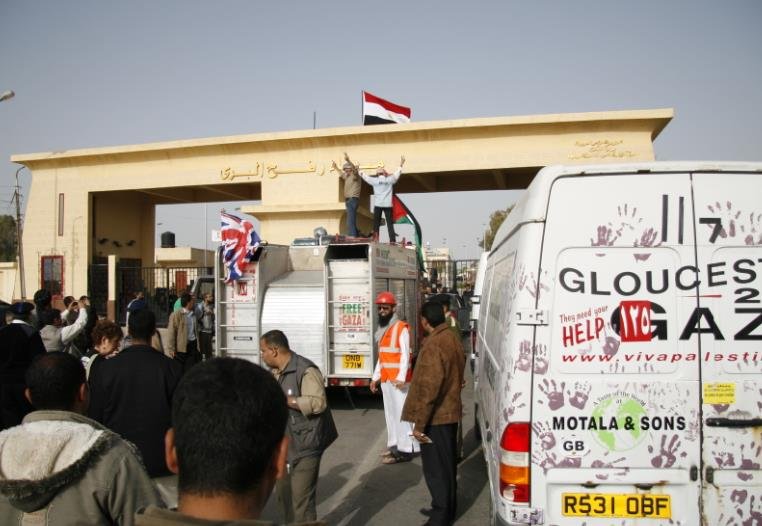Egypt has firmly denied recent reports suggesting that it plans to relocate the Rafah crossing, which borders the Gaza Strip, or to construct a new terminal near Israel’s Kerem Shalom crossing. According to Egypt’s Al-Qahera News TV channel, high-ranking security sources have confirmed that there have been no discussions regarding such changes. The Rafah crossing remains a critical point of entry for humanitarian aid into Gaza, and Egypt’s stance underscores its commitment to maintaining the current arrangements.
Egypt has categorically denied any plans to relocate the Rafah crossing. This denial comes amid rumors and media reports suggesting otherwise. High-ranking security sources have emphasized that there have been no discussions or agreements to move the crossing or to build a new terminal near Israel’s Kerem Shalom crossing. The Rafah crossing is a vital lifeline for the people of Gaza, providing essential access for humanitarian aid and other necessities.

The Egyptian government has reiterated its commitment to the current arrangements at the Rafah crossing. This stance is crucial for maintaining stability and ensuring that aid continues to flow into Gaza. The rumors of relocation have caused concern among various stakeholders, but Egypt’s clear denial aims to dispel any uncertainties.
Furthermore, Egypt has rejected any proposals for Israeli supervision over the Rafah crossing. The Egyptian authorities have stressed that the management and control of the crossing are solely under Egyptian jurisdiction. This position aligns with Egypt’s broader policy of supporting Palestinian autonomy and resisting external interference.
Humanitarian Concerns and Regional Stability
The Rafah crossing is not just a border point; it is a critical humanitarian gateway. The crossing allows for the entry of food, medical supplies, and other essential goods into Gaza. Any disruption or relocation of the crossing could have severe consequences for the people living in the Gaza Strip. Egypt’s denial of the relocation reports is a reassurance to the international community and humanitarian organizations working in the region.
Egypt’s role in the region is pivotal. By maintaining the current status of the Rafah crossing, Egypt is contributing to regional stability. The crossing’s operation is essential for mitigating the humanitarian crisis in Gaza. The Egyptian government’s commitment to keeping the crossing operational reflects its dedication to humanitarian principles and regional peace.
The international community has welcomed Egypt’s stance. Various humanitarian organizations have expressed relief at the news, as any changes to the crossing’s location could have complicated their operations. Egypt’s clear communication on this matter helps in planning and executing humanitarian missions effectively.
Political Implications and Future Prospects
The denial of the relocation reports also has significant political implications. Egypt’s position reinforces its sovereignty and control over its borders. This stance is a message to both regional and international actors that Egypt will not compromise on its territorial integrity or its role in managing the Rafah crossing.
Looking ahead, the future of the Rafah crossing remains a topic of interest. While Egypt has denied any current plans for relocation, the situation in the region is dynamic. Continuous monitoring and dialogue among the involved parties are essential to address any emerging challenges. Egypt’s proactive communication and firm stance provide a foundation for future discussions and negotiations.
In conclusion, Egypt’s denial of the reports about relocating the Rafah crossing underscores its commitment to maintaining the current arrangements. This decision is crucial for humanitarian aid, regional stability, and political sovereignty. The Rafah crossing will continue to serve as a vital gateway for Gaza, ensuring that essential supplies reach those in need.
